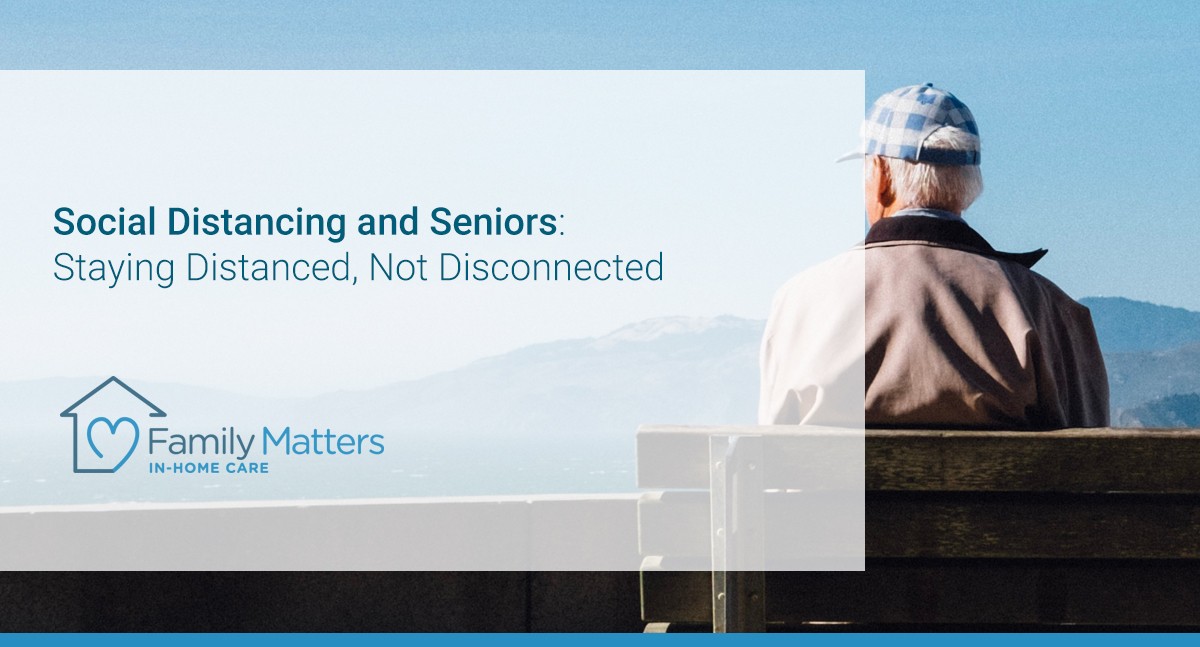
Social Distancing and Seniors: Staying Distanced, Not Disconnected
We all hear and understand the cry for social distancing given the COVID 19 public health pandemic upon us. The primary goal is to prevent transmission of the infection to high-risk people, such as our older family members, clients, patients, and residents and to prevent a meltdown of the healthcare system due to mass hospitalizations.
Social distancing, however, can be helpful or harmful depending on the motivations of those who practice it. Acting out of fear and anxiety, some people engage in bunker-style mentality, hoarding supplies (i.e. toilet paper depletion) and shutting themselves off from others entirely. Conversely, social distancing with the intent to protect those at greatest risk from getting sick (our elderly), is socially responsible and benefits most of us.
So, what are the downfalls of social distancing, and what can we do to address/cope with them? Many of us can traverse the pandemic in our homes with the support of family and friends, and perhaps, established social media. However, for older adults, social distancing can turn into social isolation from friends, relatives, and neighbors and can be deadly. In fact, numerous studies indicate that the feelings of loneliness from social isolation foster depression, high blood pressure, anxiety, and early onset of dementia.
What can you as a family member of an elderly loved one who lives at home alone or resides in an assisted living community or skilled nursing facility? At the moment, all long-term care facilities are not permitting any “non-essential” visitors into their communities. As such, you, the family caregiver may struggle with the need to communicate and remain connected to your loved one who may not understand (especially in the case of dementia) what is happening.
Here are some tips to stay Distanced, Not Disconnected:
- Pick up the phone and call the older adults in your life to chat and check in, especially if they live alone.
- When you pass an older neighbor on the street, remaining 6 feet distance, ask them how they are doing. Tell them that if they need anything, they can rely on you (and maintain your commitment).
- Set up daily communication online with your older loved one at home or in a facility through FaceTime, Google Home, Zoom, or with a phone call or text.
- Leave Voice Mail on facility staff cell phone and have them play it back for your loved one.
- Send cards, letters, magazines or other items to loved ones at home or in a long- term care facility.
Lastly, try to remain hopeful and positive that this is a TEMPORARY situation. Your older loved one will sense the positivity and calm (or lack thereof) in your communications and will respond accordingly.

If you or your family member is considering in-home care as part of a plan to age in place, contact Family Matters In-Home Care today for a free consultation. Our team is dedicated to supporting your family and helping older adults enjoy life in the comfort of their own home for as long as possible.
Some of the services offered by Family Matter In-Home Care include: Alzheimer’s & Dementia Care, Bed & Wheelchair Transfer Assistance, Companionship, Housekeeping & Meal Preparation, Personal Care, Recovery Care, and Transportation.
Serving the San Francisco Bay Area and Greater San Diego, Family Matter In-Home Care has offices throughout California including: Campbell, CA, Roseville, CA, San Marcos, CA, and San Mateo, CA.
